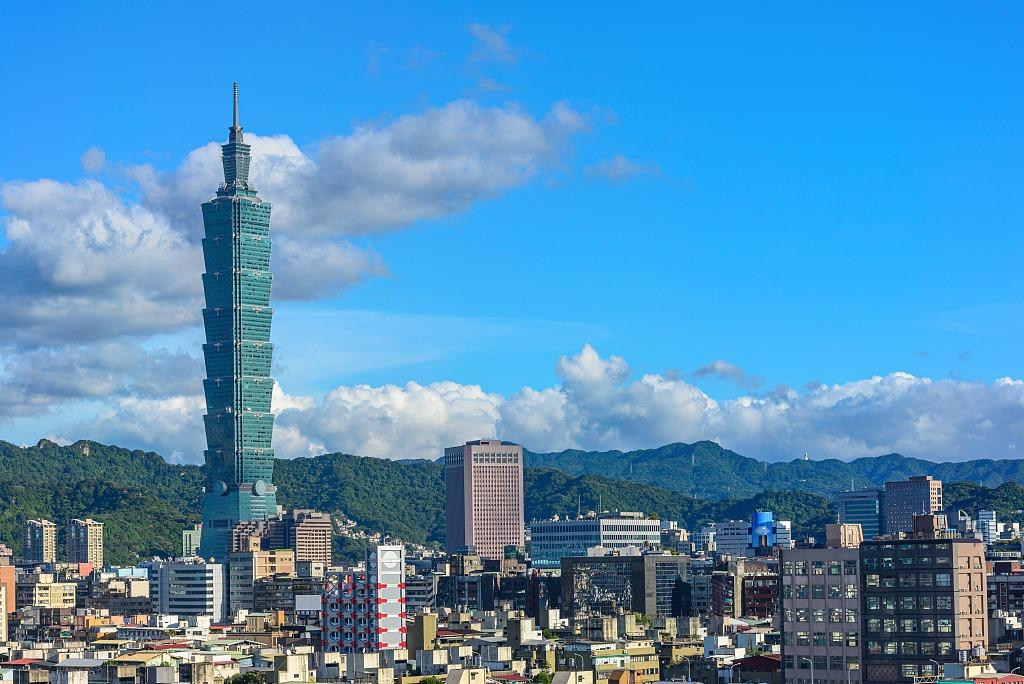 This undated file photo shows the Taipei 101 skyscraper in Taipei, Southeast China's Taiwan. (PHOTO / XINHUA)
This undated file photo shows the Taipei 101 skyscraper in Taipei, Southeast China's Taiwan. (PHOTO / XINHUA)
That Taiwan was not a country in the past, and will never be one in the future is an everlasting truth. Once the dust raised by staunch secessionist Lai Ching-te winning the local leadership election on Taiwan island settles down, the hoopla created by the "congratulatory messages" in support of that cause will be but a flash in the pan.
That's a core message Chinese Foreign Minister Wang Yi delivered while taking a question on Taiwan at a news conference in Cairo on Sunday, as well as a warning to the secessionist-minded Democratic Progressive Party authorities of Taiwan.
"Taiwan independence" has never been possible. It was not possible in the past, and it will never be possible in the future. Anyone on the island who wants to pursue "Taiwan independence" is trying to split China's territory and will be severely punished by history and law. Anyone who violates the one-China principle is interfering in China's internal affairs and infringing on China's sovereignty and territorial integrity, and will surely be opposed by the entire Chinese nation and even the international community, Wang said.
After Nauru announced it was severing "diplomatic relations" with Taipei and trying to establish ties with Beijing on Monday, only 12 out of the 193 United Nations member states, mostly small nations in the Pacific Ocean and Latin America, as well as the Vatican, still maintain "diplomatic ties" with the island. As of Monday, Taipei has lost 10 of its "diplomatic allies" to Beijing during the DPP's eight years in power. That reflects the fact that an unjust cause finds scant support.
Cairo has actually provided Wang with an ideal venue to drive home his Taiwan-related message. It was in Cairo that China, the United States and the United Kingdom issued the Cairo Declaration 80 years ago, which clearly stipulated that "Taiwan, the Chinese territory stolen by Japan, should be returned to China". After that, Article 8 of the Potsdam Declaration jointly issued by China, the US, the UK and the Soviet Union in 1945 stipulated that the provisions of the Cairo Declaration must be implemented. Japan accepted the Potsdam Declaration and declared unconditional surrender. These series of documents with binding power in international law form an integral part of the postwar international order. They also established the historical and legal foundation that Taiwan is an inalienable territory of China.
The Taiwan question is China's internal affair, and the one-China principle is the political foundation of any country's diplomatic ties with Beijing, including those of the US, which is in a better position than any other country to know that Taiwan is an integral part of China. It is only because of Washington's geopolitical goal of encircling the communist camp during the Cold War that Taiwan became a piece on its game board. It is only because it continues to play the Taiwan card to put pressure on Beijing that the Taiwan question has become a flashpoint today.
The whole world sees clearly that were it not for the US' support of the secessionists on the island, the national reunification of China would not have been postponed for so long. Although the US has tried to water down the wording of its statement on the local election of the island, its intention to butter its bread on both sides belies the hypocrisy of its stated commitment to not support "Taiwan independence".
The fundamental status quo across the Taiwan Strait is that the two sides of it belong to one China with the central authorities in Beijing being the sole legitimate government. The US, as well as its allies, must realize that they are in breach of their commitments to China and international law in sending encouraging messages in support of secessionism. They should uphold the one-China principle in good faith.


